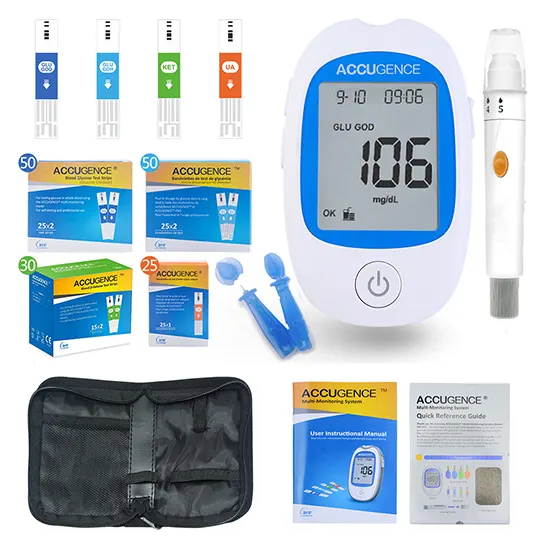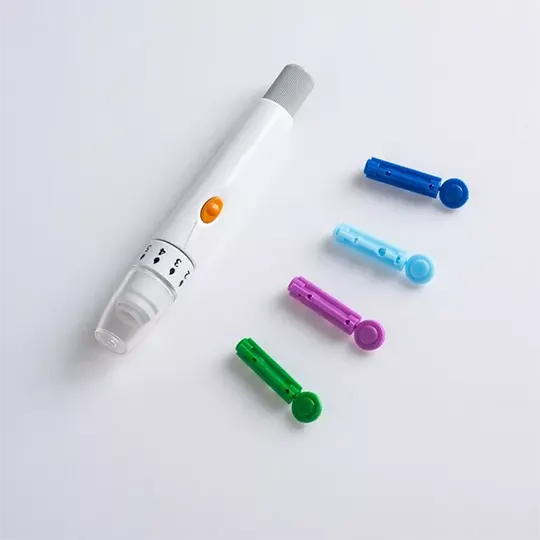Meridia
Meridia - General Information
Meridia (trade name Meridia in the USA, Reductil in Europe and other countries), usually as sibutramide hydrochloride monohydrate, is an orally administered agent for the treatment of obesity. It is a centrally acting stimulant chemically related to amphetamines. Meridia is classified as a Schedule IV controlled substance in the United States. [Wikipedia]
Pharmacology of Meridia
Meridia is an orally administered agent for the treatment of obesity. Meridia exerts its pharmacological actions predominantly via its secondary (M1) and primary (M2) amine metabolites. The parent compound, sibutramine, is a potent inhibitor of serotonin and norepinephrine reuptake in vivo, but not in vitro. However, metabolites M1 and M2 inhibit the reuptake of these neurotransmitters both in vitro and in vivo. In human brain tissue, M1 and M2 also inhibit dopamine reuptake in vitro, but with ~3-fold lower potency than for the reuptake inhibition of serotonin or norepinephrine. Meridia, M1 and M2 exhibit no evidence of anticholinergic or antihistaminergic actions. In addition, receptor binding profiles show that sibutramine, M1 and M2 have low affinity for serotonin (5-HT1, 5-HT1A, 5-HT1B, 5-HT2A, 5-HT2C), norepinephrine (b, b1, b3, a1 and a2), dopamine (D1 and D2), benzodiazepine, and glutamate (NMDA) receptors. These compounds also lack monoamine oxidase inhibitory activity in vitro and in vivo.
Meridia for patients
Read the Patient Information that comes with MERIDIA before you start using it and each time you get a refill.There may be new information.This leaflet does not take the place of talking with your healthcare provider about your medical condition or treatment.
What is the most important information I should know about MERIDIA?
Some people taking MERIDIA can have a large increase in blood pressure or heart rate (pulse).Do not take MERIDIA if your blood pressure is not well controlled.Contact your doctor if you experience an increase in blood pressure while taking MERIDIA.
Your doctor should check your blood pressure and heart rate before you start MERIDIA and continue checking it regularly while you are using MERIDIA.It is important to have regular check-ups while taking MERIDIA.
What is MERIDIA?
MERIDIA is a medicine that may help obese people, as determined by their doctor, lose weight and keep weight off. MERIDIA may help with weight loss because it affects areas of the brain that control hunger.You should use MERIDIA with a low calorie diet.
The use of MERIDIA for more than 2 years has not been studied.
MERIDIA has not been studied in children under 16 years of age.
Who should not take MERIDIA?
Do not take MERIDIA if you:
• have uncontrolled or poorly controlled high blood pressure.
• are taking or have taken a medicine called a monoamine oxidase inhibitor (MAOI).Ask your doctor or pharmacist if you are not sure if any of your medicines are MAOIs. Do not take MAOIs for at least 2 weeks before using MERIDIA.Do not take MAOIs for at least 2 weeks after stopping MERIDIA.
• have an eating disorder called anorexia nervosa or bulimia nervosa.
• are taking weight loss medicines to control your appetite.
• are allergic to MERIDIA.The active ingredient is sibutramine hydrochloride monohydrate.See the end of this leaflet for a complete list of ingredients in MERIDIA.
How should I take MERIDIA?
• Take MERIDIA exactly as prescribed.Your doctor may adjust your dose. Do not change your dose unless your doctor tells you to do so.
• You can take MERIDIA with or without food.
• If you miss a dose of MERIDIA, just skip it. Do not take an extra dose to make up for missed doses.
• If you take too much MERIDIA, call your doctor or Poison Control Center right away, or go to the emergency room.
• Tell your doctor if you do not lose at least 4 pounds in the first 4 weeks of taking MERIDIA and eating a low calorie diet.Your doctor may change your dose or stop MERIDIA. MERIDIA does not work for everyone.
What should I avoid while taking MERIDIA?
MERIDIA may not be the right medicine for you if you have certain medical conditions.Tell your doctor about all of your medical conditions,especially if you:
• have high blood pressure.
• have or had heart problemssuch as a heart attack, heart failure, chest pain or an irregular heartbeat.
• had a stroke or stroke symptoms.
• have liver or kidney problems.
• have an eye problem called glaucoma.
• have a thyroid problem (hypothyroidism).
• have or had seizures (convulsions,fits).
• have bleeding problems.
• have or had gallstones.
• have depression.
• are over age 65.
• are under age 16.
• are pregnant or planning to become pregnant.The effects of MERIDIA on your unborn baby are not known. If you can become pregnant, you should use birth control while taking MERIDIA. Tell your doctor right away if you get pregnant while taking MERIDIA.
• are breastfeeding.It is not known if MERIDIA passes into your milk.The effects of MERIDIA on your baby are not known. You should not breastfeed while taking MERIDIA.
Do not drive, operate heavy machinery or do other dangerous activities until you know how MERIDIA affects you.
Tell your doctor about all the medicines you take, including prescription and non-prescription medicines, vitamins, and herbal supplements.Taking MERIDIA and certain other medicines may affect each other and may cause serious and in some cases life-threatening side effects. Make sure you tell your doctor if you take:
• medicines called MAOIs, see "Who should not take MERIDIA?"
• other weight loss medicines
• cough and cold medicines
• migraine medicines
• depression medicines
• narcotic pain-killers
• lithium
• tryptophan
• medicines that increase bleeding
• antibiotic medicines
Know the medicines you take. Keep a list of them and show it to your doctor and pharmacist each time you get new medicine.They can tell you if it is okay to take MERIDIA with other medicines.
What are the possible side effects of MERIDIA?
Common side effects of MERIDIA include: dry mouth, headache, loss of appetite, trouble sleeping, and constipation.
The following serious side effects have been reported with MERIDIA:
• a large increase in blood pressure or heart rate in some people.See "What is the most important information I should know about MERIDIA?"
• seizures
• bleeding
• a rare, but life-threatening problem called "serotonin syndrome."It may occur when people take drugs that affect a brain chemical called serotonin along with MERIDIA.Do not take other medicines with MERIDIA unless your doctor has told you it is okay to do so. Get medical help right away if you have any of the following symptoms especially when taking other medicines with MERIDIA:
° feel weak, restless, confused, or anxious
° lose consciousness
° have a fever, vomiting, sweating, shivering or shaking
° have a fast heartbeat
Certain weight loss medicines have been associated with a rare, but life-threatening condition that affects the blood pressure in lungs (pulmonary hypertension). Because the condition is so rare it is not known if MERIDIA may cause this disease. If you experience new or worsening shortness of breath notify your doctor immediately.
Tell your doctor if you get a rash or hives while taking MERIDIA. You may be having an allergic reaction.
Tell your doctor if you get effects that bother you or that do not go away.
These are not all the side effects of MERIDIA. For more information, ask your doctor or pharmacist. MERIDIA is a controlled substance (CIV).This means that MERIDIA can be a target for people who abuse prescription medicines. Keep your MERIDIA in a safe place. Selling or giving away MERIDIA is against the law.
How should I store MERIDIA?
• Store MERIDIA at room temperature between 59° to 86° F (15° to 30° C).Never leave it in a hot or moist place.
• Safely throw away MERIDIA that is out of date or no longer needed.
• Keep MERIDIA and all medicines out of reach of children. If your child accidentally takes MERIDIA, call their doctor or Poison Control Center right away, or take your child to the emergency room.
General information about MERIDIA.
Medicines are sometimes prescribed for conditions other than those described in patient information leaflets. Do not use MERIDIA for a condition for which it was not prescribed. Do not give MERIDIA to other people, even if they have the same symptoms you have. It may harm them and it is against the law.
This leaflet summarizes the most important information about MERIDIA. If you would like more information, talk to your doctor. You can also ask your doctor or pharmacist for information that is written for health professionals.
For more information call Abbott Laboratories at 1-800-633-9110 or visit www.Meridia.net.
What are the ingredients in MERIDIA?
Active Ingredient:sibutramine hydrochloride monohydrate
Inactive Ingredients:lactose monohydrate, NF; microcrystalline cellulose, NF; colloidal silicon dioxide, NF; and magnesium stearate, NF in a hard-gelatin capsule [which contains titanium dioxide, USP; gelatin; FD&C Blue No.2 (5- and 10-mg capsules only);D&C Yellow No.10 (5- and 15-mg capsules only), and other inactive ingredients].
Meridia Interactions
CNS Active Drugs
The use of Sibutramine in combination with other CNS-Active drugs, particularly serotonergic agents, has not been systematically evaluated. Consequently, caution is advised if the concomitant administration of Sibutramine with other centrally-acting drugs is indicated.
In patients receiving monoamine oxidase inhibitors (MAOIs) (e.g., phenelzine, selegiline) in combination with serotonergic agents (e.g., fluoxetine, fluvoxamine, paroxetine, sertraline, venlafaxine), there have been reports of serious, sometimes fatal, reactions ("serotonin syndrome;" see below). Because Sibutramine inhibits serotonin reuptake, Sibutramine should not be used concomitantly with a MAOI. At least 2 weeks should elapse between discontinuation of a MAOI and initiation of treatment with Sibutramine. Similarly, at least 2 weeks should elapse between discontinuation of Sibutramine and initiation of treatment with a MAOI.
The rare, but serious, constellation of symptoms termed "serotonin syndrome" has also been reported with the concomitant use of selective serotonin reuptake inhibitors and agents for migraine therapy, such as Imitrex (sumatriptan succinate) and dihydroergotamine, certain opioids, such as dextromethorphan, meperidine, pentazocine and fentanyl, lithium, or tryptophan. Serotonin syndrome has also been reported with the concomitant use of two serotonin reuptake inhibitors. The syndrome requires immediate medical attention and may include one or more of the following symptoms: excitement, hypomania, restlessness, loss of consciousness, confusion, disorientation, anxiety, agitation, motor weakness, myoclonus, tremor, hemiballismus, hyperreflexia, ataxia, dysarthria, incoordination, hyperthermia, shivering, pupillary dilation, diaphoresis, emesis, and tachycardia.
Because Sibutramine inhibits serotonin reuptake, in general, it should not be administered with other serotonergic agents such as those listed above. However, if such a combination is clinically indicated, appropriate observation of the patient is warranted.
Drugs That May Raise Blood Pressure and/or Heart Rate: Concomitant use of Sibutramine and other agents that may raise blood pressure or heart rate have not been evaluated. These include certain decongestants, cough, cold, and allergy medications that contain agents such as ephedrine, or pseudoephedrine. Caution should be used when prescribing Sibutramine to patients who use these medications.
Drugs That Inhibit Cytochrome P450(3A4) Metabolism: In vitro studies indicated that the cytochrome P450(3A4)-mediated metabolism of sibutramine was inhibited by ketoconazole and to a lesser extent by erythromycin. Clinical interaction trials were conducted on these substrates. The potential for such interactions is described below.
Ketoconazole: Concomitant administration of 200 mg doses of ketoconazole twice daily and 20 mg sibutramine once daily for 7 days in 12 uncomplicated obese subjects resulted in moderate increases in AUC and Cmax of 58% and 36% for M1 and of 20% and 19% for M2, respectively.
Erythromycin: The steady-state pharmacokinetics of sibutramine and metabolites M1 and M2 were evaluated in 12 uncomplicated obese subjects following concomitant administration of 500 mg of erythromycin three times daily and 20 mg of sibutramine once daily for 7 days. Concomitant erythromycin resulted in small increases in the AUC (less than 14%) for M1 and M2. A small reduction in Cmax for M1 (11%) and a slight increase in Cmax for M2 (10%) were observed.
Cimetidine: Concomitant administration of cimetidine 400 mg twice daily and sibutramine 15 mg once daily for 7 days in 12 volunteers resulted in small increases in combined (M1 and M2) plasma Cmax (3.4%) and AUC (7.3%); these differences are unlikely to be of clinical significance.
Alcohol: In a double-blind, placebo-controlled, crossover study in 19 volunteers, administration of a single dose of ethanol (0.5 mL/kg) together with 20 mg of sibutramine resulted in no psychomotor interactions of clinical significance between alcohol and sibutramine. However, the concomitant use of Sibutramine and excess alcohol is not recommended.
Oral Contraceptives: The suppression of ovulation by oral contraceptives was not inhibited by Sibutramine. In a crossover study, 12 healthy female volunteers on oral steroid contraceptives received placebo in one period and 15 mg sibutramine in another period over the course of 8 weeks. No clinically significant systemic interaction was observed; therefore, no requirement for alternative contraceptive precautions are needed when patients taking oral contraceptives are concurrently prescribed sibutramine.
Drugs Highly Bound to Plasma Proteins: Although sibutramine and its active metabolites M1 and M2 are extensively bound to plasma proteins (94%), the low therapeutic concentrations and basic characteristics of these compounds make them unlikely to result in clinically significant protein binding interactions with other highly protein bound drugs such as warfarin and phenytoin. In vitro protein binding interaction studies have not been conducted.
Meridia Contraindications
Sibutramine is contraindicated in patients receiving monoamine oxidase inhibitors (MAOIs). Sibutramine is contraindicated in patients with hypersensitivity to sibutramine or any of the inactive ingredients of Sibutramine. Sibutramine is contraindicated in patients who have a major eating disorder (anorexia nervosa or bulimia nervosa). Sibutramine is contraindicated in patients taking other centrally acting weight loss drugs.
Additional information about Meridia
Meridia Indication: For the treatment of obesity.
Mechanism Of Action: Meridia produces its therapeutic effects by norepinephrine (NE), serotonin reuptake (5-hydroxytryptamine, 5-HT) and dopamine reuptake inhibition. Meridia and its major pharmacologically active metabolites (M1 and M2) do not act via release of monoamines.
Drug Interactions: Not Available
Food Interactions: Not Available
Generic Name: Sibutramine
Synonyms: Sibutramina [Spanish]; Sibutraminum [Latin]
Drug Category: Appetite Depressants; Antidepressants; Anorexigenic Agents; Stimulants
Drug Type: Small Molecule; Illicit; Approved; Investigational
Other Brand Names containing Sibutramine: Medaria; Meridia; Reductil;
Absorption: Rapid absorption following oral administration. Absolute bioavailability is not known, but at least 77% of a single oral dose of sibutramine is absorbed.
Toxicity (Overdose): Side effects include dry mouth, anorexia, insomnia, constipation and headache.
Protein Binding: 97% (to human plasma proteins)
Biotransformation: Hepatic
Half Life: 1.1 hours
Dosage Forms of Meridia: Capsule Oral
Chemical IUPAC Name: 1-[1-(4-chlorophenyl)cyclobutyl]-N,N,3-trimethylbutan-1-amine
Chemical Formula: C17H26ClN
Sibutramine on Wikipedia: https://en.wikipedia.org/wiki/Sibutramine
Organisms Affected: Humans and other mammals




